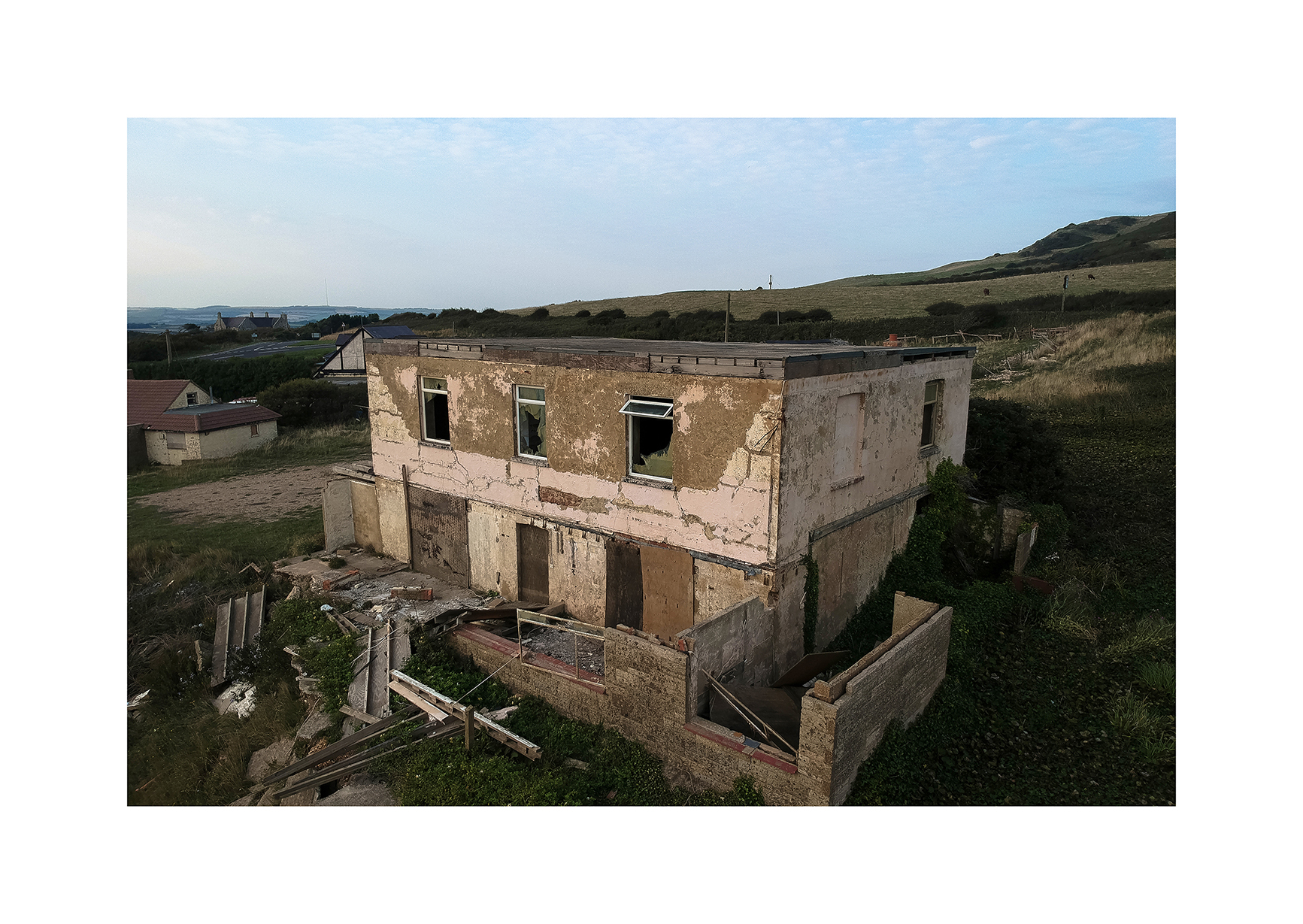Lucy Hayto: All Things Will Change
I hope my photography resonates with people and Helps them realise that this problem is close to home and not A DISTANT ISSUE.
Lucy Hayto is a documentary photographer studying her MA in Commercial Photography, living and working in London. Her work aims to inform of current issues regarding the Anthropocene, social and environmental landscape. All Things Will Change is a photographic study of coastal erosion in the UK and how the threat of global warming is increasing the deterioration of coastal regions exponentially.
Can you tell us more about the artistic practice behind your recent work All Things Will Change?
The artistic practice behind All Things Will Change comes from my love of literature and art. I’ve researched extensively different methods of photographing environmental issues and found a method that works for me. Photography as a medium for visual anthropology and the relationship between art and philosophy also interests me a great deal. We are so connected to our world but many don’t realise just how connected we are – I wanted my work to illustrate this. I usually come up with a huge, impossible idea and continually shoot for that idea until I have narrowed it down into something well researched, informed and beautiful. I’m always learning, currently studying my Masters but I really feel there is so much more to learn, not only about photography, but also about myself.
The relationship between photography, art and all human subjects is profoundly interesting. Sociological, philosophical, anthropological, so many other themes, interpreted through visual media to educate and deeper understand those complex subjects. What, or who, inspires your artistic practice in general?
I am inspired by almost everything in the world – mostly my passion for wanting change. There are so many incredible artists who are working in a similar field who inspire me to make better images. Photographers like Alec Soth, who I have admired since I began my journey in photography, and who I will always go back to for inspiration when I am caught on an idea. Living in London is a great place find inspiration, it encourages me to get out there and do the work I want to be doing.
What are your own thoughts on climate change?
Climate change is scary and very, very real. It is something we have contributed to, we need to start making changes now before it’s too late. I hope my photography resonates with people and helps them realise that this problem is close to home and not a distant issue. I am aware of how the general media is now picking up on the subject of climate change, there are articles almost daily about the uncertainty of our future, I just hope my work is one that adds to that and makes people really think about our future. I believe I am part of a generation that wants to facilitate change, it is a good thing that we are all so aware of what is happening in the world.
It’s good to be aware, it’s the step toward actual, quantifiable change. Any words for aspiring photographers, artists and journalists?
The thing that helped me find my feet the most was studying for my BA, a lecturer, at the time, told me to stop comparing my work to others. I have a terrible habit of looking at the work of my peers and colleagues and thinking my own work is nowhere near as good as theirs. As soon as I started believing the work I was making was important and relevant, my practice really took off. Experimentation is key and it’s great fun – try different art mediums and/or write as much as you can.
A great insight to share Lucy. Comparing and evaluating your own morals, achievements, or in this case work practice to those who may have some advantage be it physical, emotional, educational or metaphysical can greatly affect your own morale, downward social comparison, as Thomas Wills put forward. For us artists I think this social psychological theory is prevalent in so many ways, but yes, once you manage to overcome that you’re in a state of creating work without the comparison. We’ve seen great art come from artists who aren’t creating while surrounded by a sea of other work.
Where does the title All Things Will Change come from?
The title All Things Will Change comes from the poem Nothing Will Die by Alfred Lord Tennyson. The poem resonated with me as I believe the quote ‘nothing was born, nothing will die, all things will change’ relates heavily to climate change and coastal erosion – the world is constantly changing under our feet and again, the uncertainty of what the future holds for this planet is a huge thing.










